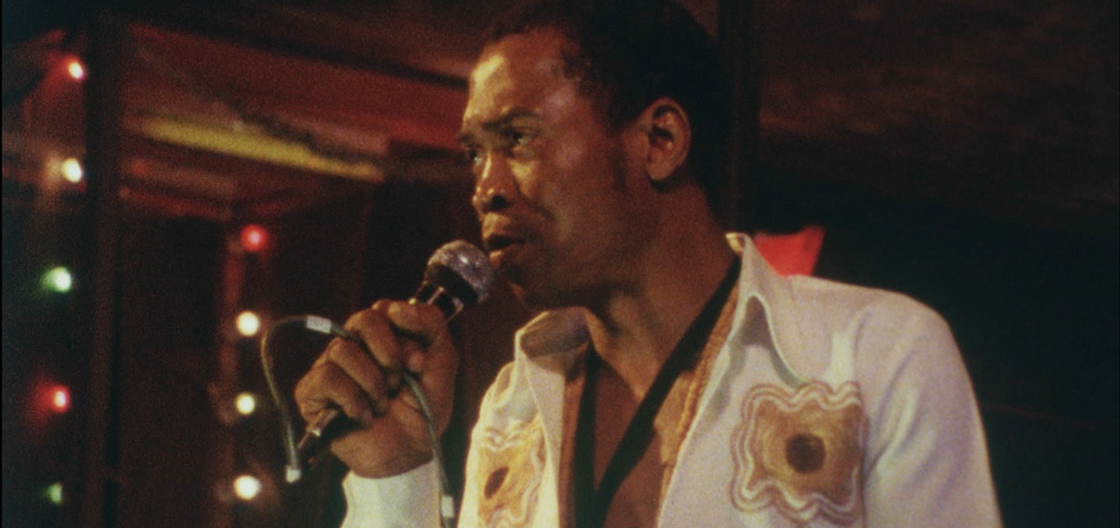
Few artists embodied the mantra of music as weapon as thoroughly as Fela Kuti – the postcolonial warrior-poet who fought against Nigeria’s autocratic military government with the same fervour as he crafted some of the most intensely danceable tunes since the dawn of civilisation. Finding Fela is a political film with the rhythm and flow of a music documentary; an exuberant celebration of the life of one of Africa’s most beloved sons which, while occasionally flirting with the realm of unabashed hagiography, nonetheless provides context and character with such a strong, crystal-clear voice that it’s impossible not to get caught up in the relentless drive of it all.
Kuti, the son of Funmilayo Ransome Kuti, an early anti-colonialist activist and champion of rights for African women, was the voice of a restless generation of Nigerians who felt cheated by influx of corrupt oil money into their barely realised nation-state; a man who, through his intense musical performances and stump speeches at his nightclub African Shrine, invigorated a broad class sentiment which had been uneasily dormant since the collapse of the British colonies. His life screams for a concerted, focused documentary effort.
Alex Gibney (Enron: The Smartest Guys in the Room, We Steal Secrets) frames the film as a conversation between the often unbelievable excesses of Kuti’s life and the droll realpolitik of the production of Fela!, the Broadway production about him. It’s an interesting contrast, and the director raises a pertinent question: is it contradictory to beatify an avowed anti-capitalist revolutionary with an elaborately produced show? The two sides of Fela Kuti – the pan-African social democrat and the born showman – provide different answers. African music doco regular Questlove, in one of many strong interviews with those who knew Kuti and those who revere him, speaks to the legitimacy of the production as a reflection of the man’s energy and perfectionism as a musical performer. Clips of the Broadway production play alongside frankly stunning archival footage of the same events, and we’re invited to compare the two. Under the pulsing musical celebration, there’s politics afoot.
On the subject of music: yes. Kuti pioneered the genre of Afrobeat, which revitalised the Nigerian pop genre highlife by fusing it with Afro-American forms like soul, funk and jazz. It served as a reclamation of African influence on western popular music by seizing those appropriated styles and perfecting them. The film itself is never silent, and Kuti’s overwhelmingly vast back catalogue provides ample source for a movie’s worth of explosive jams. Live concert footage which I’ve never seen before revealed both the swelling energy of Nigerian nightclubs and the comparatively subdued appreciation of the European audiences he played for so frequently.
Nonetheless, the construction of character feels hagiographical in the extreme. Issues like Kuti’s casual sexism are mentioned, explained away and never discussed again. The director of the stage show, who in some senses acts as a stand-in for Gibney himself, raises an interesting problem: does one censor ideologies which would not resonate with (and perhaps offend) 21st century Brooklynites, or is there an obligation to faithfully recreate Fela as, as he was so often described in the film, a True African Man? This point is raised, then discarded. The infectious beats start up again, and the beatification continues.
Finding Fela can in some ways be compared to last year’s Academy Award winner Searching for Sugar Man. Both films concern the impact of music on grassroots politics in Africa, formulated into digestible narratives. Where Finding Fela exceeds Sugar Man, however, is its commitment to an authenticity of spirit and a wholehearted realisation of political context. It’s a film which arcs toward celebration and reverence, but nonetheless maintains the rage at the sociopolitical malaise which gave rise to Kuti’s fury. Under the pulsing rhythms, violence lingers.
Around the Staff:
| Christian Byers |
